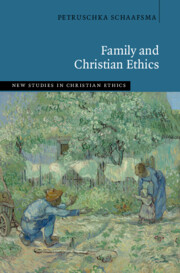Acknowledgements
This book is in my name, but, when writing it I depended on the confidence and involvement of good colleagues, dear friends and everyday family. I have been able to complete it only because others also believed in the book and especially in the substantive approach long before it was more fully elaborated. All of them I would like to thank here emphatically.
That belief that this book would be realised was made concrete in all the opportunities offered to me by my employer, the Protestant Theological University, under the leadership of the rectors Gerrit Immink, Mechteld Jansen and Maarten Wisse, opportunities that included not only the long-term career path in which the completion of this book played a crucial role, but also a sabbatical that is at the basis of this book. Of crucial importance in this process in particular were the chair holders – initially Jan Muis and later Maarten Wisse. They championed my cause at the management level. Above all, they sometimes saw better than I did what characterised my theological-ethical approach to family. Such keen observations along with their unconditional support helped me a lot, both in the formal process and to keep my spirits up.
The same goes for the other immediate colleagues with whom I could talk about what theology should be today and who made time to read my texts and to comment and engage in critical and constructive conversation about them – Rick Benjamins and Pieter Vos, and, in recent years, my colleagues at the Moral Compass Project, Theo Boer, Rob Compaijen, Sophia Höff, Stef Groenewoud, Klaas-Willem de Jong, Dominique Klamer, Ariën Voogt and Margriet Westers. I am grateful that, on the basis of this academic trajectory, the Protestant Church also gave me the confidence to continue my work as a professor of theological ethics. I experience that as a special appeal.
My chair was given the title ‘theological ethics’. My predecessor in this post, Gerrit de Kruijf, had at one point deliberately chosen the title ‘ethics’ for it, although theology and church were in a way a much more natural bedding for his academic work than they are for mine. He just didn’t want the rubric of ‘theological’ to limit his opportunities for conversation. ‘Morality is conversation material of all people. God does not narrow the view, but rather opens a wide face’, he wrote in his book Ethiek Onderweg (Ethics along the Way).Footnote 1 That we still use his book in ethics teaching in the master phase is precisely due to this. For the eight opinions of this eschatologically oriented ethica viatorum, De Kruijf naturally drew on the Bible and ethical literature. He also sought out fellow travellers in whose texts God ‘is sometimes hardly mentioned, if at all’. In this way, he also hoped to enter into conversation with people unfamiliar with church and Christianity, let alone theology.
It is not difficult to see that aspiration reflected when I find my travel companions in this book in philosophy, social anthropology or care ethics in which God is not explicitly discussed. Precisely in the framework of that broader conversation I explore theology’s own contribution. That is why I am delighted that this book has been included in the New Studies in Christian Ethics series, which aims precisely to deepen and enrich the secular moral debate with ‘an understanding that is not entirely secular’.Footnote 2 I dedicate the book to Gerrit de Kruijf, who showed how the ‘wide face’ can be sought precisely from the distinctness of a theological perspective. Without De Kruijf’s generous encouragement, the research for this book would never have gotten off the ground.
The book itself would certainly never have been completed if I had not had a ‘ghostwriter’ in Udo Doedens, who in countless ways attuned me to the ‘Ghost’ – who gave air when under too much pressure, appealed to the soul when it was once again hiding and animated into me ‘the breath from which we spring’.Footnote 3
1 ‘Moraal is gespreksstof van alle mensen. God zorgt niet voor blikvernauwing, maar opent juist een wijd gezicht’ (Gerrit de Kruijf, Ethiek Onderweg: Acht adviezen (Zoetermeer: Meinema, 2008), 8).
2 See for this citation Chapter 1, note 66.
3 This phrase comes from a poem written by Willem Barnard in response to the text of Matt. 8:1–13 and set to music as song 840 in the hymnbook of the Protestant Church in the Netherlands (Roel A. Bosch, Jan Breimer, Pieter Endedijk et al., eds., Liedboek: Zingen en bidden in huis en kerk (Zoetermeer: BV Liedboek, 2013)).

